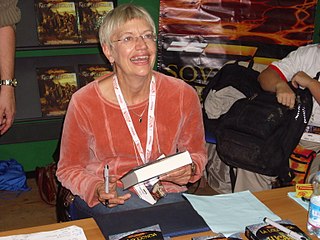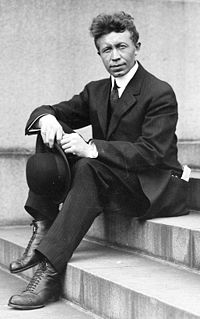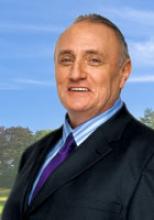A Quote by Brian Stableford
From the viewpoint of the writer, the most significant aspect of fantasy and science fiction is that stories of these kinds are either set in imaginary worlds or feature the appearance in the familiar world of some imaginary entity.
Related Quotes
What writers of fantasy, science fiction, and much historical fiction do for a living is different from what writers of so-called literary or other kinds of fiction do. The name of the game in F/SF/HF is creating fictional worlds and then telling particular stories set in those worlds. If you're doing it right, then the reader, coming to the end of the story, will say, "Hey, wait a minute, there are so many other stories that could be told in this universe!" And that's how we get the sprawling, coherent fictional universes that fandom is all about.
Instead of inventing imaginary friends, I invented whole imaginary worlds. They were elaborate scenarios about spies and adventurers and top secret missions. I crawled along my swing set, searching for escape routes from my maximum-security prison; I biked through the neighborhood, the wind in my hair and a fleet of evildoers on my heels.
One might think this means that imaginary numbers are just a mathematical game having nothing to do with the real world. From the viewpoint of positivist philosophy, however, one cannot determine what is real. All one can do is find which mathematical models describe the universe we live in. It turns out that a mathematical model involving imaginary time predicts not only effects we have already observed but also effects we have not been able to measure yet nevertheless believe in for other reasons. So what is real and what is imaginary? Is the distinction just in our minds?
Science fiction is fantasy about issues of science. Science fiction is a subset of fantasy. Fantasy predated it by several millennia. The '30s to the '50s were the golden age of science fiction - this was because, to a large degree, it was at this point that technology and science had exposed its potential without revealing the limitations.
Religion is the yeast of death cakes. It is the most awful agent on a vulnerable mind. It's the refuge of alienated and lonely people. It's what people had before television. It yokes people together into an imaginary world. It is just people talking to their imaginary friends, at length. I wouldn't mind, but some of the people are world leaders.
For any artistic person who creates imaginary people, the art is like inhabiting the life and mind of a seven-year-old child with imaginary friends and imaginary events and imaginary grace and imaginary tragedy. Within that alternate universe, the characters do have quite a bit of free will. I know it's happening in my mind and my mind alone, but they seem to have their own ability to shape their destinies. So I'm not shooting for anything. If the characters are vulnerable it's simply because they're very human.




































